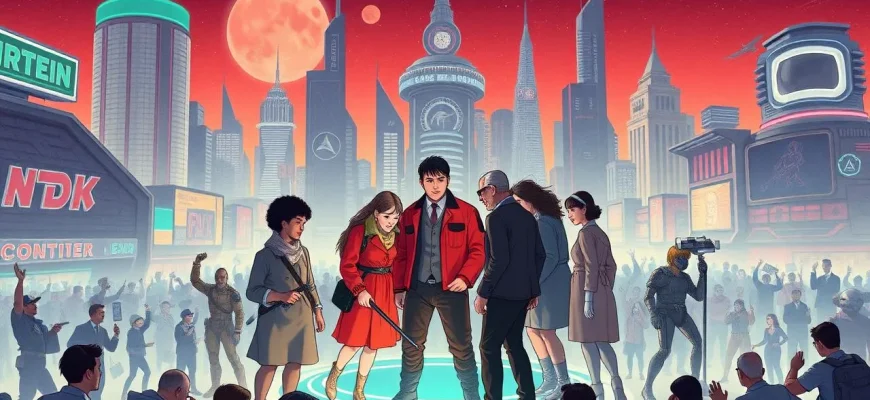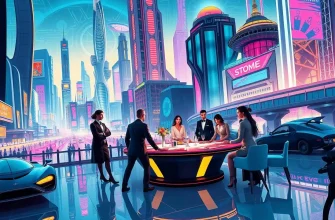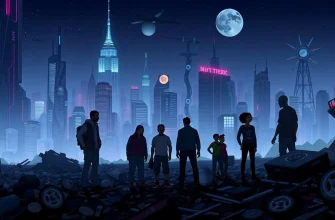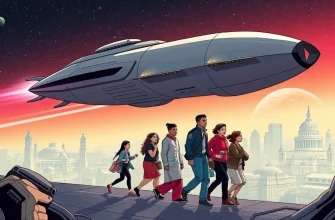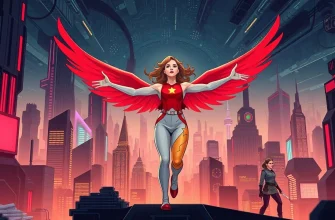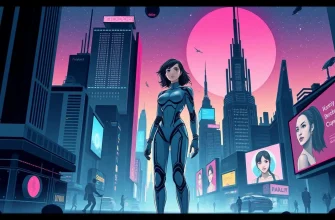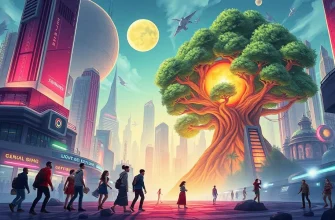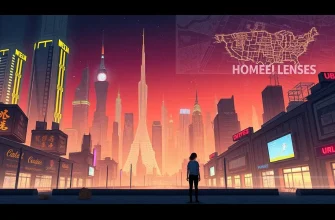In the realm of science fiction, the exploration of societal changes and movements often takes centre stage. These films not only entertain but also provoke thought about the potential futures of our social structures. Here's a curated list of 10 films that brilliantly weave the fabric of social movements into their narratives, offering both a thrilling experience and a mirror to reflect upon our own world.
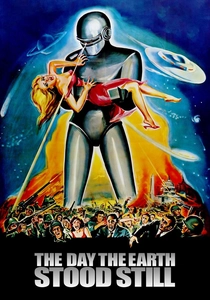
The Day the Earth Stood Still (1951)
Description: An alien arrives on Earth with a message of peace but also a warning about humanity's destructive nature, which can be seen as a call for social change and unity.
Fact: The film was remade in 2008 with Keanu Reeves, but the original remains a classic for its social commentary.
 Watch Now
Watch Now
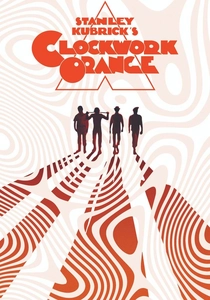
A Clockwork Orange (1971)
Description: Stanley Kubrick's film explores themes of free will, violence, and state control, with the protagonist's journey reflecting broader societal issues and the potential for rebellion.
Fact: The film was banned in several countries due to its graphic violence, but it has since become a cult classic.
 Watch Now
Watch Now

Gattaca (1997)
Description: In a society where genetic engineering determines one's place, a naturally born man strives to overcome discrimination, highlighting themes of social stratification and resistance.
Fact: The film's title is based on the four nucleobases of DNA: guanine, adenine, thymine, and cytosine.
 Watch Now
Watch Now

The Matrix (1999)
Description: While not explicitly about social movements, the film's narrative of breaking free from an oppressive system resonates with themes of revolution and awakening, making it a symbolic representation of social change.
Fact: The Wachowskis developed the concept for "The Matrix" after reading "Simulacra and Simulation" by Jean Baudrillard, which explores the concept of hyperreality.
 Watch Now
Watch Now
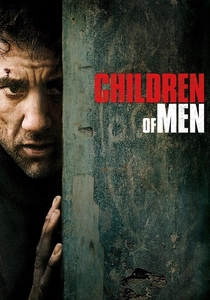
Children of Men (2006)
Description: Set in a world where humans can no longer reproduce, this film follows a man's journey to protect the only pregnant woman, symbolizing hope and the fight for a future amidst societal collapse.
Fact: The film features several long, uninterrupted shots, including a 6-minute scene that was shot in one take.
 Watch Now
Watch Now

Equilibrium (2002)
Description: In a future where emotions are outlawed, a law enforcement officer begins to question the regime, leading to a social uprising. This film delves into the consequences of suppressing human emotions and the fight for individuality.
Fact: The film's director, Kurt Wimmer, also wrote the screenplay, which was inspired by Ray Bradbury's "Fahrenheit 451" and Aldous Huxley's "Brave New World."
 Watch Now
Watch Now
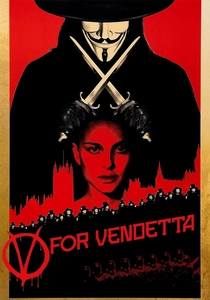
V for Vendetta (2005)
Description: This film explores the themes of revolution and resistance against an oppressive government, making it a perfect fit for our theme. It's about a masked vigilante who inspires a revolution in a dystopian future Britain.
Fact: The film's iconic mask has become a symbol for various protest movements worldwide. The character V was inspired by Guy Fawkes, who attempted to blow up the Houses of Parliament in
 Watch Now
Watch Now
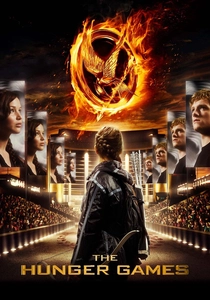
The Hunger Games (2012)
Description: This film series depicts a dystopian society where the Capitol controls the districts through annual televised death matches, sparking a rebellion. It's a clear allegory for social inequality and resistance.
Fact: The film's director, Gary Ross, insisted on using real arrows in the archery scenes, which added to the authenticity of the performances.
 Watch Now
Watch Now

Elysium (2013)
Description: Set in a future where the rich live on a luxurious space station while the rest suffer on an overpopulated Earth, this film showcases the struggle for equality and the uprising against class division.
Fact: The film was shot in Mexico City, which was used to represent the dystopian Earth.
 Watch Now
Watch Now

Brazil (1985)
Description: A dark comedy that critiques bureaucracy and totalitarianism, where a man's pursuit of a woman leads him into a surreal battle against an oppressive system, reflecting themes of resistance.
Fact: The film's title "Brazil" has no direct connection to the country; it's the name of the song that plays during a key scene.
 30 Days Free
30 Days Free

